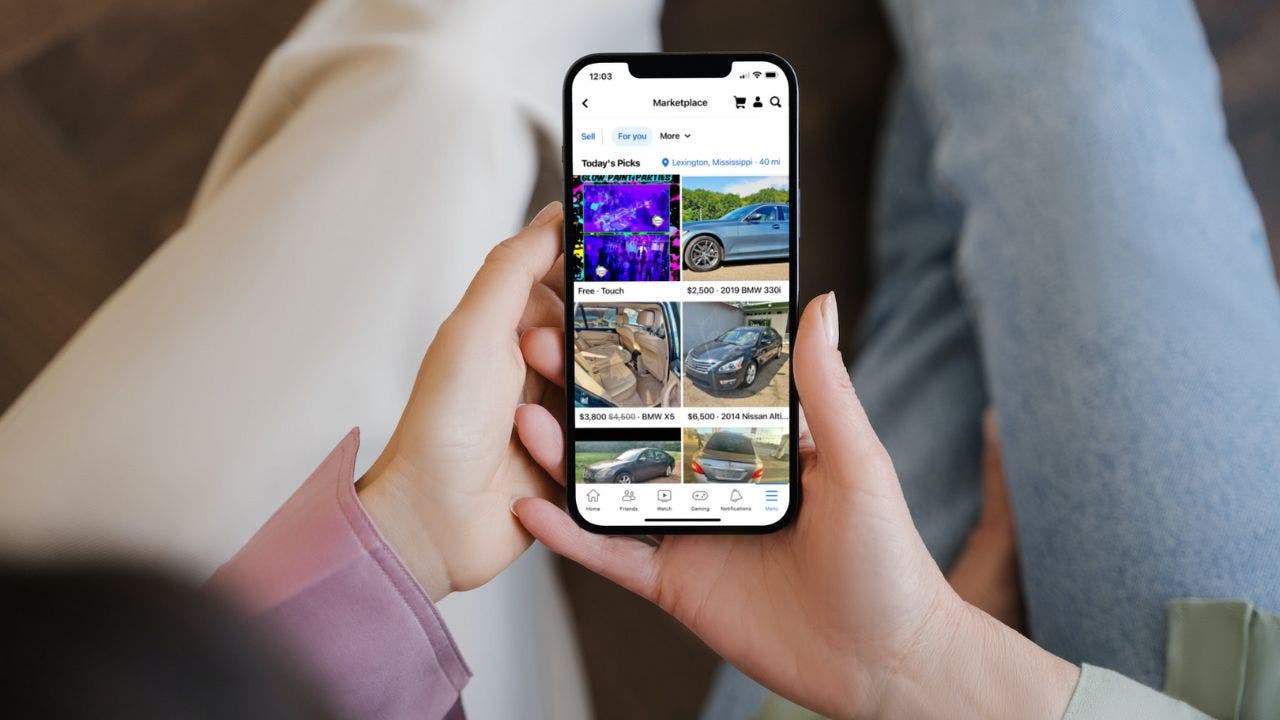Scammers are always finding new ways to deceive and steal from unsuspecting individuals. In our ongoing CyberGuy series, “Confessions from a scam victim,” today we feature Diane from Logansport, Indiana. Despite being smart and cautious, Diane almost fell victim to a prevalent scam on Facebook Marketplace. Her experience serves as a cautionary tale for all of us. Here’s what she has to say:
“In FB Marketplace, especially with valuable items, you’ll receive immediate inquiries, usually from profiles with no friends or recent activity. These scammers use various photos – ‘family,’ ‘pretty girl,’ ‘older lady,’ ‘mom & child’ – pictures that are obviously too good to be true. Typically, these profiles only have one photo. I was almost fooled again. I responded to their messages but refused to give them my phone number or call their provided number. The lack of local information on their profile raised suspicions. When I inquired, they couldn’t answer any questions about the local area.” – Diane, Logansport, Indiana
Facebook Marketplace is a hot spot for scammers because there is limited verification for local buyers and sellers. This lack of protection both on and off the platform makes it easier for scammers to operate. Being aware of these scams is crucial when using Facebook Marketplace.
Scammers use Facebook Marketplace to steal personal information. Here is how this scam plays out:
Step 1 – Scammers pose as friendly individuals: Scammers respond to sellers’ listings on Facebook Marketplace, portraying themselves as friendly locals interested in purchasing the item. To gain sellers’ trust, they use pleasant profile pictures, such as elderly women or mothers with children.
Step 2 – Scammers ask to confirm your identity: Once they express interest, scammers will ask for sellers’ phone numbers in order to confirm their identity. Sellers are then instructed to text a code that appears on their phone to the scammers.
Step 3 – Scammers try to obtain verification codes: The verification code sellers are asked to text back to the scammers can be used to access their online accounts, including email, social media, or banking. This code could also serve as two-factor authentication, allowing scammers to take control of the sellers’ accounts. Additionally, it may be an authorization code to set up a Google Voice number, enabling scammers to perpetrate more scams.
Sharing verification codes with individuals contacting you on Facebook Marketplace should always be avoided. If you receive an unsolicited text message with a verification code, do not respond or click on any links. Report the message as spam and block the sender.
There are several red flags to watch out for on Facebook Marketplace. Diane encountered some of these red flags and wisely avoided falling for the scam.
Red flag #1 – Limited friends, pictures, or posts: Scammers often have few friends, pictures, and minimal posting activity on their profiles. Check if the person recently joined Facebook or has an established presence. The longer the profile has been active and the more posts it has, the more likely it is to be a genuine person rather than a scammer. Take the time to assess their profile before agreeing to any transactions.
Red flag #2 – Pretending to be local: Since many people prefer local transactions on Facebook Marketplace, scammers often pretend to be from the same area as the seller. Communicate exclusively through Facebook and never share your phone number unless absolutely necessary. If you have already shared your phone number, verify the area code to confirm its proximity to your location. You can also ask them questions about your area to test their knowledge.
Red flag #3 – Grammar and spelling mistakes: Poor grammar and spelling mistakes are frequently indicative of scammers whose first language is not English. Trust your instincts, and if something feels off, refrain from proceeding with the sale and cease communication.
Red flag #4 – Urgency and pressure: Scammers may exert pressure on sellers to share personal information immediately or come across as overly aggressive. If you feel rushed or uncomfortable, it’s likely a scammer.
Red flag #5 – Attempts to move the conversation from Facebook: Be cautious if someone tries to move the conversation from Facebook to another platform, such as text messaging or phone calls. Keep all discussions within the Facebook Marketplace platform and Facebook Messenger.
Red flag #6 – Requests for personal information: If someone asks for your phone number, email address, or any personal information right away, it’s a red flag. Avoid sharing this information with anyone you communicate with on Facebook Marketplace.
Red flag #7 – Requests to pay with gift cards: Scammers may ask to pay for items using gift cards, which is not a secure or traceable form of payment. They may attempt to use fake gift cards or give you a gift card with no balance.
To avoid falling victim to a Facebook Marketplace scam, meet potential buyers in safe, public places when exchanging items.
Denial of responsibility! Vigour Times is an automatic aggregator of Global media. In each content, the hyperlink to the primary source is specified. All trademarks belong to their rightful owners, and all materials to their authors. For any complaint, please reach us at – [email protected]. We will take necessary action within 24 hours.


